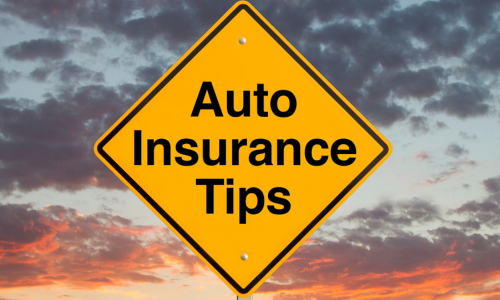Top 5 Mistakes That Could Make Your Auto Insurance Skyrocket

Did you know that a simple mistake, like failing to shop around for insurance or ignoring your credit score, could cause your auto insurance premium to skyrocket by hundreds of dollars each year? According to a study by the Consumer Federation of America, nearly half of all drivers are overpaying for their auto insurance due to common oversights—mistakes that could easily be avoided with a little knowledge and proactive effort.

Auto insurance is more than just a legal requirement—it’s a crucial financial safety net that protects you from the potentially catastrophic costs of accidents, damage, or theft. But while it’s essential, car insurance premiums can add up quickl, and it’s easy to fall into traps that drive your costs even higher. What many drivers don’t realize is that seemingly small mistakes, like choosing the wrong coverage, neglecting to update your policy, or ignoring discounts, can lead to unnecessarily high premiums.
In this blog, we’ll highlight the top 5 mistakes that can cause your auto insurance rates to rise, often without you even realizing it. More importantly, we’ll share actionable tips on how to avoid these costly errors and help you keep your premiums as low as possible. Whether you’re renewing your policy or shopping for a new one, these insights will ensure that you’re not overpaying for the coverage you need. Let’s dive in and make sure you’re not falling victim to these common mistakes that could be putting a dent in your wallet!
1. Failing to Shop Around for Quotes
Why It’s a Mistake:
One of the biggest mistakes drivers make is simply renewing their car insurance with the same provider every year without checking if they could get a better deal elsewhere. While it may seem convenient to stick with your current insurer, it often means you’re overpaying. Insurance rates fluctuate, and your insurer may not always offer the best deal for your changing circumstances.
How It Affects Your Premium:
Insurance companies adjust their rates based on a variety of factors, including changes in your personal driving history, local accident rates, and even economic conditions. By staying with the same insurer year after year, you could be missing out on competitive offers from other providers. Insurers may even raise your rates unexpectedly, and without shopping around, you won’t know if a better deal is out there.
How to Avoid It:
Before renewing your policy, make it a habit to shop around and compare quotes from at least 3-5 different insurers. Use comparison websites like The Zebra, Compare.com, or Insurify to quickly compare rates and coverage options. Look for policies that provide the best balance of coverage and cost, and make sure you’re not missing out on new discounts or promotions.
2. Choosing the Minimum Required Coverage
Why It’s a Mistake:
Many drivers opt for the bare minimum coverage required by their state, believing it’s the most affordable option. While this may lower your upfront premiums, it can leave you financially exposed in the event of a serious accident or damage. Minimum coverage often doesn’t provide enough protection, especially in high-cost accidents.
How It Affects Your Premium:
While increasing your coverage limits might seem like it will increase your premium, sometimes the difference is minimal, and in some cases, higher coverage can actually be more cost-effective. For instance, higher liability limits can protect you from out-of-pocket costs in case you’re at fault in an accident, avoiding the need to pay for repairs, medical bills, or legal fees on your own.
How to Avoid It:
Review your coverage needs every year, considering factors like:
- The value of your car: If you have a newer or more valuable vehicle, higher coverage may make more sense.
- Your driving habits: If you commute long distances, higher coverage could be important due to increased risk.
- Local risks: Consider your area’s accident rates, weather conditions, or theft risks when evaluating coverage levels.
Consult with your insurance provider to determine if your current coverage level is adequate or if increasing your limits could save you more in the long run.
3. Ignoring Your Credit Score
Why It’s a Mistake:
Your credit score is not only important for loans and mortgages—it can also play a significant role in determining your auto insurance premium. Many insurance companies use your credit score as an indicator of risk. Drivers with lower credit scores are often seen as higher-risk clients, which can translate into higher premiums.
How It Affects Your Premium:
Insurance providers view poor credit scores as an indicator that you may be more likely to file claims or default on your policy. As a result, they may charge you higher premiums to compensate for the perceived risk. On the other hand, a good credit score often leads to discounts, lower rates, and better overall terms.
How to Avoid It:
Check your credit score regularly and take steps to improve it. If your score is lower than you’d like, focus on:
- Paying bills on time: Timely payments can positively impact your score.
- Reducing debt: Pay down credit card balances to improve your credit utilization ratio.
- Avoiding unnecessary credit inquiries: Too many hard credit checks in a short time can lower your score.
By maintaining a healthy credit score, you may see a significant drop in your premiums over time.


